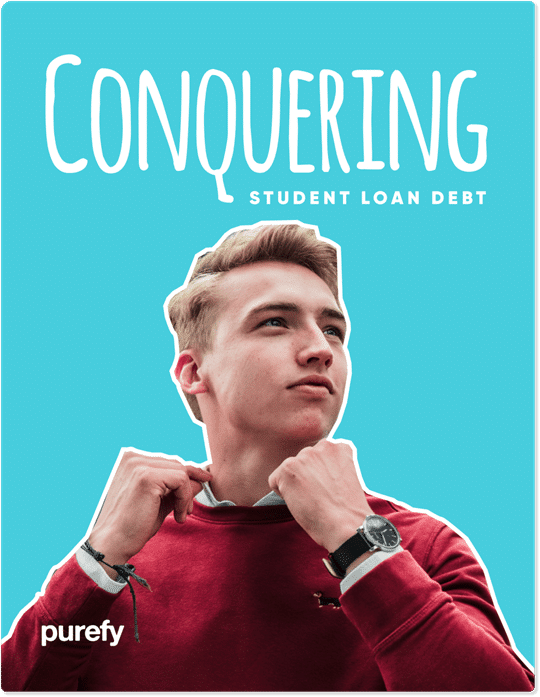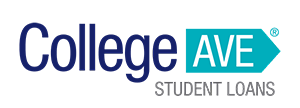If you dropped out of college, you may be feeling overwhelmed by your student loans and alone. However, your situation isn’t unique. According to the National Center for Education Statistics, 38% of college students don’t graduate within six years of enrollment. It’s a common problem, and managing your student loan debt without a degree can be especially challenging.
If you have high-interest student loans from your time in school, you may be researching student loan refinancing to potentially get a lower rate. But can you refinance student loans without a degree? While many lenders require borrowers to have graduated, there are some exceptions.
What Is Student Loan Refinancing?
Student loan refinancing is a term referring to a specific process for handling your education debt. It’s a process where you apply for a new loan from a lender specializing in refinancing, and using it to pay off your older loans.
Refinancing loans will have different terms than your existing loans. Typically, borrowers refinance so they can get a lower interest rate or to combine all of their loans into one. Student loan refinancing can make managing your debt easier, and you can even save money over the life of your repayment term.
Since borrowers usually have multiple student loans, refinancing can also streamline your repayment. Your loans are combined into one, so you’ll have just one loan and one payment after you refinance your debt.
What Are the Requirements for Student Loan Refinancing?
Student loan refinancing is offered by private lenders, including banks, credit unions, and online lenders. Each lender will have its own requirements for borrowers. However, borrowers typically need to meet the following criteria:
- Applicant must be at least 18 years old
- Applicant must meet specific income and credit score requirements
- Applicant’s loans are in repayment status (not deferred)
Most refinancing lenders also require borrowers to be college graduates; if you’re still in school, or if you left college before earning your degree, you’re ineligible for most refinancing loans. However, there are a few notable exceptions.
The 2 Best Companies to Refinance Student Loans
Our Top-Rated Picks for 2024 Offer Low Rates and No Fees

Why Do Lenders Usually Require Degrees?
When lenders review borrower applications, they’re considering the applicant’s ability to repay the loan. They will look at factors like the individual’s credit score, existing debt, and payment history to determine whether to approve them for a loan.
Whether you earned a degree has a big impact on your earning potential and, consequently, your ability to afford your loan payments. The U.S. Bureau of Labor Statistics found that the median earnings of college graduates was 46% higher than the median earnings of individuals with only some college education. That’s why many lenders require borrowers to have degrees to qualify for student loan refinancing; you are more likely to make more money than someone who left college before completing their program.
Lenders That Allow You to Refinance Student Loans With No Degree
Although most lenders have degree requirements for refinancing, that’s not the case for all lenders. There are some refinancing lenders that look at your entire application to determine your eligibility for a loan, and are willing to approve applicants without degrees as long as they meet their other criteria.
Two of the top lenders that allow you to refinance student loans without a degree are ISL Education Lending and Earnest.
ISL Education Lending
ISL Education Lending, formerly known as Iowa Student Loan, offers private student loans and student loan refinancing. It’s a non-profit corporation that has competitive rates and loan terms.
To qualify for a loan from ISL Education Lending, you must meet the following requirements:
- Applicants must have a credit score of 670 or higher
- Monthly payments for approved credit, including rent and car payments, cannot exceed 40% of your gross monthly income
- Applicants must not have previous bankruptcies or charge-offs
- Applicants cannot have more than two accounts reporting 30-day delinquencies
- You must not have more than $300,000 in student loans
ISL Education Lending doesn’t have any requirements for degrees. If you don’t meet all of the requirements, you may still qualify for a loan by adding a co-signer to your application.
The lender’s refinancing loans have fixed interest rates. As of November 5, 2021, rates range from 2.24% to 5.67%, and loan terms range from five to 20 years. Refinancing is offered for undergraduate, graduate, and parent student loans.
ISL Education Lending doesn’t charge origination fees, prepayment penalties, or late fees.
Earnest
Earnest is a top private student loan and refinancing lender. Earnest’s refinancing loans can have fixed or variable interest rates. As of November 5, 2021, rates start at 1.88% for variable-rate loans and 2.44% for fixed-rate loans, including the 0.25% autopay discount.
Earnest usually requires degrees, but it makes exceptions if you meet the following criteria:
- You have a credit score of 700 or higher
- The final date of attendance for the incomplete degree was more than six years ago
- The school you attended was not a for-profit institution
- You must have at least $5,000 in student loan debt ($10,000 in California)
- You must be employed or have another form of consistent income
Earnest offers special loan benefits, such as the ability to skip one payment per year and the option of setting up biweekly autopayments. Earnest doesn’t charge origination fees, late fees, or prepayment penalties.

Free eBook: How to Conquer Student Loans
Free eBook: How to Conquer Student Loans

Why It Makes Sense to Refinance Student Loans Without a Degree
Although it can be harder to find a lender willing to work with you if you don’t have a degree, it can be well worth the effort. By refinancing your student loans, you can take advantage of the following benefits:
1. You Can Save Money
One of the main reasons people refinance their loans is to get a lower interest rate. If you have student loans at a high-interest rate, refinancing gives you the opportunity to save money. Depending on your loan amount and monthly payment, a lower interest rate can help you save hundreds or even thousands of dollars over time.
For example, Sharon had $25,000 in student loans at 7% interest and eight years left on her repayment term. She wanted to save money on her debt, so she refinanced and opted for a seven-year term with a fixed interest rate of 4.75%. By refinancing her loans, Sharon saved over $3,200 — and is out of debt one year sooner than she expected.
| Original Loan | Refinanced Loan | |
| Loan Term | 8 Years Remaining | 7 Years |
| Interest Rate | 7.00% | 4.75% |
| Monthly Payment | $341 | $350 |
| Total Paid | $32,721 | $29,435 |
| Total Interest | $7,721 | $4,435 |
| Total Savings: $3,286 |
2. You Can Reduce Your Payments
What if your payments are too high? Refinancing can help you with that, too. When you refinance your loans, you may get a lower rate, but you can also decide to extend your loan term; some lenders offer terms as long as 20 years.
Selecting a longer loan term can dramatically lower your monthly payment. You’ll likely pay more in interest overall because there’s more time for interest to accrue, but you’ll be able to handle your monthly payments more easily.
For example, Sam had $50,000 in student loans before he dropped out his senior year. At 6% interest and a 10-year repayment term, Sam’s payments are $555 per month. He decided to refinance his loans and extended his repayment term to 15 years. With a longer term, he qualified for a 5.00% interest rate, so his monthly payment dropped to $395 — giving him $160 more each month.
3. You Can Get Out of Debt Faster
If you’re like many people, you may be sick of worrying about your loans and want to pay them off as quickly as you can. If that’s the case, student loan refinancing might be a good option.
By refinancing your loans, you can change your loan term and qualify for a lower rate than you have now. Lenders typically give their lowest interest rates to borrowers that select terms of eight years or less, so a shorter term can help you save even more money. Because of the lower rate, more of your payments go toward the principal, so you could pay off your loans years earlier than you originally expected.
For example, David had $40,000 in student loans at 6% interest and a 10-year term. If he made the minimum payments for the duration of his repayment term, he’d repay a total of $53,290 — interest charges would be over $13,000 to his loan cost.
If David refinanced his loans and qualified for a seven-year loan at 4.25% interest, he’d repay just $46,315 over the life of his loan — a savings of nearly $7,000. Plus, he’d be out of debt three years sooner. Use our Student Loan Refinance Calculator and see how much you could save.
How to Get the Best Deal on Student Loan Refinancing
Now that you know the benefits of refinancing your student loans without a degree, you can begin the process of searching for a lender. To get the best possible loan for your situation, follow these tips:
1. Improve Your Credit
When you’re applying for a loan, your credit history and credit score will play huge roles in whether or not you get approved; the better your credit, the more likely it is that you’ll get high-quality offers to choose from. Before shopping for a loan, check your credit at AnnualCreditReport.com to see what is impacting your credit.
Having incorrect information on file can damage your credit and cause lenders to deny your application, so review your report carefully. If there are any errors on your credit report that affect the information lenders will see about you, submit disputes online with each of the credit bureaus. If your credit score is not in the good to excellent range — 670 to 850 — focus on improving your credit by making all of your payments on time, reducing your credit card balances, and minimizing new credit applications before you apply for student loan refinancing.
2. Pay Down Debt
When reviewing your application, lenders will look at your debt-to-income ratio (DTI), or the amount of your gross monthly income that goes toward your debt payments. In general, lenders want to see a DTI under 40%, however lower is always better. Paying down credit card balances, eliminating personal loans or car loans, or reducing your housing expenses can improve your DTI.
3. Ask a Friend or Relative to Cosign the Loan
If your credit is less than the lender’s requirements or if you don’t meet their minimum income criteria, don’t get discouraged; you may still qualify for a loan — and get a good interest rate — if you ask a family member with good credit and consistent income to cosign the loan. A cosigner serves as a backup on the loan, promising to make the payments if you fall behind. Adding a cosigner lessens the lender’s risk, so they’re more likely to approve your loan application than if you applied by yourself.
Tip: Acting as a cosigner is a big decision, but it doesn’t have to be permanent. Many refinancing lenders offer cosigner releases after you’ve made a specific number of payments on time. If you meet the lender’s borrower requirements at that time, you can apply for your cosigner to be removed from the loan.
4. Shop Around
Unlike federal student loans, private student loans and refinanced loans don’t have set rates; rates and loan terms vary by lender. Lenders usually offer multiple repayment terms and may have both fixed and variable interest rates, so it’s a good idea to shop around and compare loan offers from multiple student loan refinancing lenders so you can choose one that fits your budget.
When comparing loans, keep in mind that the monthly payment is just one tiny factor you should consider. Also look at the lender’s rates, fees, penalties, overall repayment cost, and other benefits or policies, such as how the lender handles financial hardships or unemployment.
5. Choose a Short Loan Term
When you refinance your loans, you have the ability to choose your own loan term. Depending on the lender, you can generally choose a term between five and 20 years. A longer loan term can be appealing because it lowers your monthly payment; however, lenders will charge you a higher rate if you opt for a longer term.
Lenders usually give their lowest rates to borrowers that choose terms shorter than 10 years. If your goal is to save as much money as possible, select a term of five, seven, or eight years.
6. Enroll in Autopay
Once you apply and accept a loan, be sure to sign up for automatic payments. Autopay will ensure you make all of your payments on time without having to manually make them yourself. As an added bonus, most lenders, including Earnest, offer interest rate discounts if you enroll in automatic payments. Enrolling in autopay can lower your interest rate by 0.25%. Although that’s a modest discount, it can help you save hundreds of dollars over the length of your repayment term.
7. Decide Between Variable and Fixed
With federal student loans, your interest rate is fixed, meaning it stays the same for the entirety of your loan term. Private student loans and refinancing loans sometimes work differently. Some lenders offer both fixed and variable interest rates, allowing you to choose which is best for you.
Fixed rates never change, so you’ll have the same monthly payment for the duration of your loan. With variable rate loans, the interest rate is based on the lender’s margin and an index, such as LIBOR. As the index changes, your interest rate — and your monthly payments — can change, too.
Why would someone choose a variable-rate loan? While there is more uncertainty, variable-rate loans tend to have lower initial rates than fixed-rate loans. If you plan on paying off your student loans aggressively and make extra payments, a variable-rate loan can help you save money and pay off your debt even faster.
See How Much You Can Save
View Details
Collapse
Step 3: See How Much You Can Save
$15,310
Lifetime Interest
Savings
$1,018
New Monthly
Payment
$128
Monthly
Savings
| Current Loan | New Loan | Savings | |
|---|---|---|---|
| Rate | 6.7% | 4.2% | 2.5% |
| Lifetime Interest | $37,520 | $22,210 | $15,310 |
| Monthly Payment | $1,146 | $1,018 | $128 |
Like what you see? Check your actual prequalified rates from the industry’s top lenders in just 2 minutes or less.
Alternatives to Student Loan Refinancing If You Don’t Have a Degree
If you’ve been trying to decide whether or not to refinance your student loans with no degree, remember that it’s a big decision with serious financial implications. Weigh the pros and cons of debt refinancing carefully before making any decisions.
If you don’t think student loan refinancing is the right choice for you, you may be able to utilize one of these alternatives:
Loan Consolidation
If you have federal student loans on a standard 10-year repayment plan, one way to make your debt more manageable is to consolidate them with a Direct Consolidation Loan. They’ll stay federal, but they’ll be combined into one. You can also choose a repayment term as long as 30 years to lower your monthly payments.
Consolidating your loans can be especially helpful if you have Parent PLUS Loans or other federal loans that are ineligible for income-driven repayment plans or loan forgiveness. By consolidating your loans, they’ll become part of the Direct Loan program. After you consolidate, you’ll be eligible for IDR plans and can pursue Public Service Loan Forgiveness.
You should know that consolidating your loans won’t affect the interest rate; the rate on the new loan is based on the weighted average of your existing ones, rounded up to the nearest one-eighth of one percent.
Income-Driven Repayment (IDR)
Available to federal student loan borrowers, IDR plans cap your monthly payments at a percentage of your discretionary income that is calculated based on your family size and an extended loan term. If you make payments for the entire term — 20 to 25 years, depending on the IDR plan — and still have a balance at the end of it, the government will forgive the remaining amount.
Just keep in mind that not everyone will save money with an IDR plan; with the longer loan term, you may pay more in interest than you would if you had stuck with a 10-year repayment plan.
Forbearance or Deferment
If you have federal student loans, you may be eligible for a deferment or forbearance.
Federal student loans offer deferments or forbearances as a way to postpone your payments during times of financial hardship, unemployment, military service, graduate school enrollment, medical leave, and other significant life events.
Depending on the type of deferment or forbearance you qualify for, you could postpone your loan payments for up to three years over the life of your debt.
While federal student loans offer deferments and forbearances as protection for borrowers, not all private lenders do the same. Refinancing lenders aren’t required to offer those benefits, but some lenders do allow borrowers to postpone payments if they’re dealing with a financial emergency. Before selecting a refinancing lender, review their terms to make sure you understand their policies.
Other Payment Plans
If you have private student loans, you can’t apply for IDR plans or other federal programs. However, you may be able to get relief by contacting your lender.
Some private student loan providers may agree to help you if you’re experiencing financial hardships. If you’ve lost your job or are dealing with substantial medical issues, they may agree to accept reduced payments or waive late fees. Contact your lender as soon as you realize you may not be able to afford your payments to maximize your chances of getting on an alternative payment plan.
Managing Your Debt
You might think that you may not have many options because you didn’t graduate from college, but there are several lenders that will help you refinance student loans without a degree. To improve your chances of qualifying for a loan — and a competitive interest rate — focus on improving your credit score and paying down debt before applying for a new loan.
Compare rates from several student loan refinancing lenders, and, if you need help getting a loan, ask a friend or family member to cosign your application. By taking these steps, you can successfully refinance your loans and tackle your balance.
Need help? You can get personalized, one-on-one assistance from Purefy’s student loan advisors. You can learn about how refinancing works and its benefits, learn about the lenders that allow you to refinance without a degree, and be guided through every step of the application process. Their help is completely free, and you can schedule a consultation with a student loan advisor online.



















